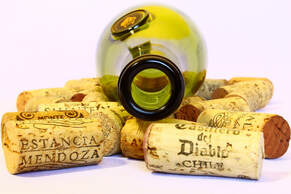 This title is actually a subversive question because it directs you towards a line of thinking: that the only solution to increasing reliance on alcohol, food, video games or cannabis lies in a prohibitive attitude of not doing something. Not far behind are admonishing complaints like: “I set limits but never keep to them. I’m beginning to hate myself.” Or “I indulge with a compulsive, secret rebellion - even though I know there’s no one I’m rebelling against. I have no will power.” Or the classic: “I know what I should do…but I don’t. I’m pathetic.” These are conflictual statements, each of which contains evidence of a power dynamic alongside compromised self-esteem. Who is this secret authority against whom we rebel, and then feel “bad”? Subversive actions roam these phrases like spies. If we dispense with the wrangling over who gets to wear the crown for a moment, we can ask a different question: “Where on your list of friendships is your particular indulgence?" You have an undeniable relationship with it, even a close one, so how high up the ladder has it gone? Perhaps we could agree that top of the list is a position best avoided. Comfort. Warmth. Dependability. The dissolution of anxiety and furrowed brows. These are qualities we naturally derive from close relationships with others, but also by our indulgences. We can think of compulsive indulgence in terms of a human need for relationship - and instead of relying on cycles of shame and failing prohibition, try to work on a balance in our relational world that helps us feel healthy and regulated. Diversity of relationships can help to free us from the binary, conflictual mechanics of desire and prohibition. We can use actions to further our deep need for reliable relationships - not just to other people, but to our physical, mental and emotional selves. We can reach out to nature. We can refocus on careers, hobbies and passions. We can exercise. We can apply ourselves to projects and improvement. Examples like these can help regulate emotions and lead us toward self-esteem in ways that an over-reliance on immediate gratification cannot. We crave regulation of our emotional worlds in times of crisis: it’s natural to do so. It makes sense that you’re reaching out to a particular relationship to help you achieve that - one that’s probably convenient and feels dependable. But if that dependence is being asked to carry the lion’s share of unpleasant, crisis-level emotions such as anxiety, boredom or despair, it might be time to diversify your portfolio, and thereby to respect the other relationships in your life. You never know - they might crave you back. Please note: This article is about dependency rather than physical addiction.
0 Comments
Leave a Reply. |
Tom BarwellPsychotherapist, working in private practice online Archives
July 2023
Categories
All
|
 RSS Feed
RSS Feed